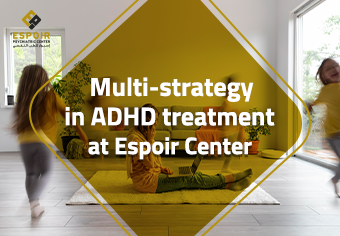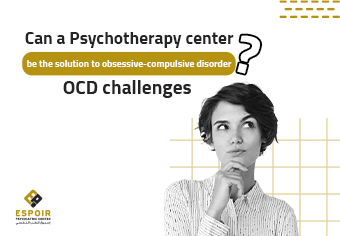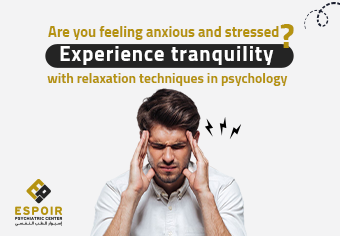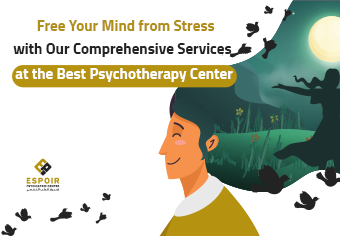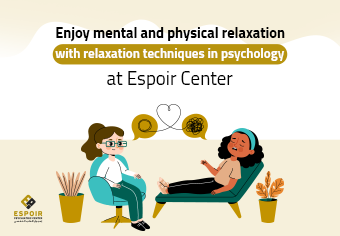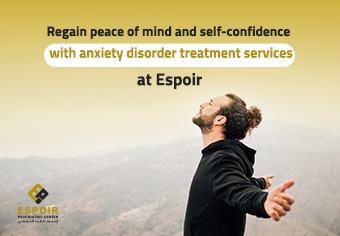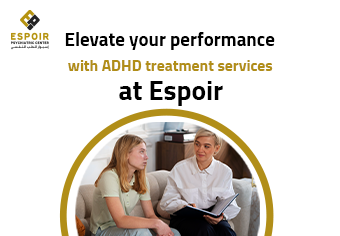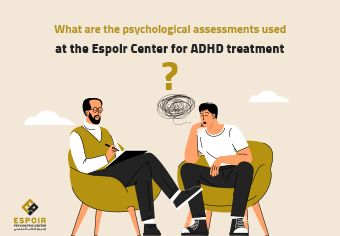
ADHD treatment requires a long journey of focus with the affected individual to reach a stage of recovery from this behavior. Espoir is a center specialized in treating ADHD and Attention Deficit Disorder with Hyperactivity, where we provide comprehensive services for treating children and adults suffering from this disorder, helping them improve their ability to focus and control attention. Espoir stands out for its handling of the best specialized team of doctors and psychologists who fully understand the challenges and needs of patients, and therefore develop individualized treatment plans tailored to each patient based on the degree of attention deficit, in order to accurately understand the symptoms and achieve satisfactory results.
Traditional and Alternative Treatments for ADHD treatment:
Traditional treatments rely on globally recognized medical methods and techniques, while alternative treatments are characterized by their diversity in approaches to effectively address individual needs according to the severity of their condition. Therefore, there are some differences between traditional and alternative treatments.
Traditional Treatments:
Pharmacological Treatment: Involves taking medications aimed at improving focus and attention in patients.
Behavioral or Educational Therapy: Through learning behavior management strategies and developing organizational and time management skills.
Family and Social Support: Involves psychological support from the patient’s family members to help them cope with the challenges associated with the disorder.
Alternative Treatments:
Nutritional and Exercise Therapy: This treatment focuses on improving nutrition and engaging in physical exercise to enhance mental health and focus in patients.
Cognitive Training Therapy: Involves the use of cognitive training techniques such as “meditation and concentration” to enhance the patient’s ability to control attention.
Causes and Factors Leading to the Development of (ADHD):
Untreated attention deficit disorder can progress in patients, influenced negatively by several causes and factors.
Firstly: Genetic Factors:
There may be genetic factors that play a role in the development of ADHD symptoms, as there could be an inherited gene that negatively affects brain function.
Secondly: Hormonal Changes:
Hormonal changes in the body can affect brain function and the activity of neurotransmitters such as norepinephrine and dopamine, which are associated with ADHD.
Thirdly: Neurodevelopmental Problems:
When there is a disruption in brain neurodevelopment, it contributes to the development of attention deficit disorder, such as underdevelopment of brain regions responsible for attention and focus.
Fourthly: Stress and Life Challenges:
Increased exposure to continuous stress and facing numerous life challenges, such as family and social changes, increases the likelihood of developing ADHD deficit disorder.
Fifthly: Psychological and Social Factors:
Psychological factors such as mental stress or difficulties in social communication may play a role in increasing the likelihood of developing ADHD deficit disorder.
Understanding the Various Types of Treatments Available for ADHD and How to Choose the Most Suitable One:
There are several types of treatments available for individuals with ADHD, and the choice of the most suitable treatment varies depending on each patient’s individual condition and the severity of the symptoms they are experiencing. Here are some available treatments:
Pharmacological Treatment:
Involves using medications such as norepinephrine and dopamine reuptake inhibitors, which work to improve focus and attention. The appropriate medication is selected based on the psychiatrist’s assessment of the patient’s health condition and potential drug interactions.
Behavioral and Educational Therapy:
Includes learning behavior management strategies and developing response skills to deal with daily challenges. This is done by tailoring the educational program for each patient based on their individual needs and treatment goals.
Psychological Therapy:
Psychological therapy can be beneficial for patients experiencing psychological issues accompanying ADHD, such as anxiety or depression. Psychological therapy involves sessions with a clinical psychologist to provide support and guidance.
Family and Social Support:
Support from family and friends is important in alleviating stress and enhancing emotional support.
At Espoir Psychiatric Center in Qatar, we employ a multi-strategy approach when choosing the most suitable treatment. Several factors must be considered, such as the severity of symptoms, age, overall health status of the patient, as well as personal preferences and individual needs.

Important Tips for Patients and Family Members to Improve Life with ADHD:
1- Organization and Time Management:
Create a daily schedule that outlines the timing of different activities and tasks.
2- Use Focus Techniques:
Try deep breathing and meditation techniques to calm the mind and enhance focus.
3- Prioritize General Health:
Maintain a healthy lifestyle, including balanced nutrition, regular exercise, avoiding excessive intake of stimulants like caffeine and sugar, and ensure adequate sleep.
4- Seek Support from Professionals:
Seek support from professionals such as psychologists or social workers for professional advice and strategies.
5- Enhance Social Interaction:
Participate in social activities that promote communication and reduce social isolation, such as joining clubs or hobby groups.
6- Communicate with Family and Friends:
Share your experiences and challenges with family members and friends, and seek support and assistance when needed.
7- Learn and Develop Skills:
Seek educational and training resources to develop stress management skills and improve focus and organization.
Conclusion:
Espoir Center’s services reflect its commitment to providing the best possible healthcare for each patient, directing efforts towards achieving overall well-being and personal progress for individuals. This is done in collaboration with a team of specialists and professionals, while providing a supportive and motivating environment for patients to achieve their goals and improve their quality of life comprehensively. This is accomplished by adopting a comprehensive approach and an effective strategy in ADHD treatment.
In short, Espoir Center stands out as a distinguished destination for patients with ADHD, offering comprehensive and effective services aimed at improving their lives and making a positive impact on their communities.

